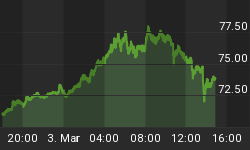"...The US Dollar's hoped-for decline had now become a rout, driving the greenback down to new all-time lows on its trade-weighted index..."
Saturday, 19th Sept. 1931
Montagu Norman - governor of the Bank of England - is sailing back to London from a vacation in Canada. He'd felt "under the harrow" since February, and one day in late July had gone home early "feeling queer".
After a week in bed, Norman chose to take a month's complete rest across the Atlantic, far from the pressures of work, politics and constant public calls for his resignation - if not imprisonment.
The Sterling Crisis then raging had already prompted Winston Churchill to say "I hope we shall hang Montagu Norman...I shall certainly turn King's evidence against him." Why turn snitch? Because six years earlier, Norman had persuaded Churchill - then Chancellor of the Exchequer - to take Great Britain back onto the Gold Standard at the old rate of £3 17s 10½d per ounce.
Pricing the Pound Sterling at that pre-World War I exchange rate valued it at $4.86 in terms of the US Dollar, some 10% above prevailing market prices. The aim had been to defend Sterling as the world's No.1 currency; otherwise "the business not only of the British Empire but of Europe as well might have to be transacted in Dollars instead of Pounds Sterling," Churchill told parliament in May 1925.
But the "Norman Conquest of $4.86" as it became known made British exports hopelessly uncompetitive, leading to huge losses in the coal and steel industries. The pressure on wages and unemployment led to the General Strike of 1926 - when Britain flirted with revolution - while tax receipts covered less than half the government's outlay that year.
By the time Norman was sailing back from Canada in Sept. 1931, the British Treasury was set to run an annual deficit of £170 million, some 41% greater than the previous forecast. During one week in August, the "Old Lady" - the Bank of England's nickname since the last Sterling Crisis of 135 years earlier - lost more than £40 million in gold reserves. Panicked foreign investors demanded gold as they dumped the Pound on news reports of a mutiny over pay at the naval station of Invergordon that eventually came to nothing.
But finally, and with Montagu Norman still out of the country, the Bank of England caved into public demand and asked the government to close the gold window, suspending convertibility.
Just ahead of the parliamentary vote required, Norman's colleagues cabled a message to his ship as it neared the Irish coast:
"Old Lady goes off Monday..."
"Poor Norman!" writes Peter L.Bernstein in his tome, the Power of Gold. "He thought they were referring to his mother's plans for a vacation..."
Wednesday, 30th Sept. 1987
Less than three weeks ahead of the US stock market's worst ever one-day drop on Black Monday, Oct. 19th, US Treasury Secretary James Baker delivers a speech to a meeting of leaders from world's top industrialized nations.
It's two years after the famous Plaza Accord had slowly brought the Dollar down from record highs against the rest of the world's currencies. But the problem of "wild gyrations" in the forex markets still plagued businesses and trade, as British Chancellor Nigel Lawson remarked.
Crude oil remained subdued compared with its record peaks of 1980, but global inflation rates were ticking upwards from the trough achieved by Fed chairman Paul Volcker's kill-or-cure double-digit interest rate policy in the first-half of the decade.
In establishing a series of target ranges for the world's major currency exchange rates, the new Louvre Accord of Feb. 1987 had also invited speculative attacks of the kind that would force the British Pound and Italian Lira out of the European exchange-rate mechanism five years later. And what's more, the US Dollar's hoped-for decline starting in 1985 had now become a rout, driving the greenback down to new all-time lows on its trade-weighted index.
The new instabilities prompted Karl Otto Pöhl - president of the German Bundesbank - to say "the United States should have a recession" to reduce its yawning trade deficit. So what does Baker do in response?
"To the surprise of most of his G-7 partners," writes Steven Solomon in The Confidence Game, "Baker unveiled a proposal for a new commodity price indicator, including gold, to help anchor low inflation in the policy co-ordination process.
"Proposals for a commodities-based anchor had been floating around the Treasury since just after the Plaza Accord [but] the inclusion of gold - the 'barbarous relic' that, to the satisfaction of most experts, had been demonetized since President Nixon ended dollar-gold convertibility by fiat on August 15, 1971 - mystified most observers."
Was Baker serious? His British opposite number, Nigel Lawson, thought so. He spoke at the Sept. G-7 on just the same topic, proposing a new system of "managed floating" rates in a speech prepared by "working with Jim Baker".
But their academic fiddling failed to convince the German delegation that the Dollar's guardians would prevent it slumping further, and one week later the Bundesbank raised its key lending rate, forcing a spike in global bond yields.
That drove prime rates at the largest US banks 0.5% higher by the morning of Black Monday - even as the Dollar lost 4% vs. the Deutschmark inside three weeks - when the Dow Jones lost more than one-fifth of its value.
(P.S: The Gold Price in Sterling today recorded a PM Fix in London of more than £488 per ounce, representing a loss of value in the British Pound of more than 99% in a little over 76 years.)
















